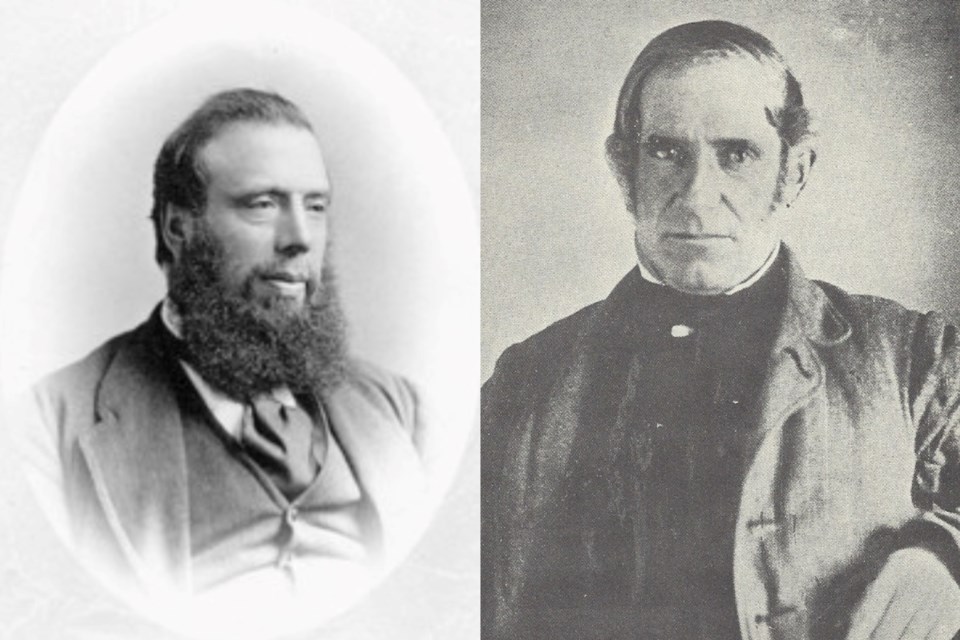The wording of the newspaper article was stark and uncompromising.
It stated in no uncertain terms that a politician “having before hand declared his determination to [win] by any means and at all hazards … calls to his aid a regiment of ruffians … drilled to obey his sign. The lifting of his arm is to show a signal more potent than words. He sees them armed, distributes them deliberately, and then employs them to crush the electoral privileges of the people whose interests are at stake.”
The selection above is not taken from a modern-day account of the insurrection that took place in Washington D.C. on Jan. 6, 2021. It is from an editorial in the Toronto Globe of Aug. 17, 1858, reflecting on the violence that took place in Wellington County during an election in what was then the western part (Ontario) of the Province of Canada.
The author was writing about an ugly incident that took place in Maryborough. But the particular act of violence that would shock colonial Canada
happened in Elora.
Rowdyism at election time was common in those days, but things got especially rough that year.
Nassau C. Gowan, the Conservative candidate for North Wellington, was accused of bringing in outside muscle to intimidate the supporters of his opponent, Charles Allan of Elora. The alleged leader of the pro-Gowan ruffians (who were sworn in as “special” constables) was Thomas R. Ferguson, Conservative MPP for Simcoe South and Gowan’s brother-in-law.
According to the Globe, Ferguson had a reputation for using bully-boy tactics at polling stations. He got away with such behaviour, said the Globe, because he was a friend of Premier John A. Macdonald. It should be noted that the Globe was an anti-Macdonald publication.
Allan felt fully justified in recruiting his own squad of “special” constables from Elora to defend his voters. However, in the clash at Maryborough, the Allan men were unarmed and were outnumbered by the Ferguson men who were armed with cudgels. There would later be rumours that some of Ferguson’s gang had pistols in their pockets.
Nonetheless, when the polls closed the following day – Aug. 14 – Allan was the winner by 518 votes. That night in Elora, a stronghold for Allan, a crowd turned out to celebrate. They gathered in front of Bain’s Commercial Hotel to hear the results from the various communities in the riding announced.
A bonfire was lit, and the village cannon was fired. Allan and his chief supporters made speeches from the hotel balcony. Then Allan said goodnight and headed for his home. Some of the crowd left for their homes, too, but others stayed on to continue the celebration.
They were still there after 11 o’clock when a buggy suddenly arrived on the scene. The driver took it straight into the crowd and people had to jump out of the way. A loud groan went up from the throng when they saw that the passenger was Thomas Ferguson.
The buggy stopped in front of the hotel entrance. People swarmed around it, hissing and shouting at Ferguson. Someone cried, “This is the Simcoe blackguard!”
The driver wanted to get the buggy out of there, but Ferguson seized the reins and prevented him. The people then saw he had a pistol in his right hand. He pointed it at a man named Andrew Gordon who was standing right beside the buggy and said, “Damn you, you’ll have it.”
According to Gordon’s account of that night, “I sprang up about 18 inches and seized the gun … pulled Ferguson out of the buggy with the gun; when on the ground (I) heard the lock click. The gun did not go off … James Duncan assisted me to get hold of the gun … (I) considered myself in immediate
bodily danger when the gun was presented at me.”
It was fortunate the gun had misfired, because it was found to be loaded with powder and shot. A discharge at point-blank range could have been fatal.
Ferguson was arrested and charged with attempting to shoot Andrew Gordon.
The incident, which quickly became known as The Elora Outrage, stunned the generally law-abiding populace of British North America. A drunken brawl at a polling station was one thing; but assault with a firearm was a step well over the line.
The news eventually reached Mother England, where it was also met with disbelief. After all, pistol-packing politicians were supposed to be something one found in the United States, that cursed land of radical republicanism; not Canada, where sensible people held to the British ideal of peace, order and good government.
An official inquest was held in Elora, presided over by Crown Attorney John J. Kingsmill of Guelph. After the testimony of all the witnesses had been heard, Ferguson was found not guilty of any wrongdoing. The Globe thundered that he got off scott-free because he was politically well-connected.
“The fraud, corruption, and ruffianism which are distinguishing characteristics of the present Ministerial regime … render the administration of justice a mockery and a snare. The proceedings of the packed body of Justices at Elora … in connection with the examination of Mr. Ferguson, M.P.P., on a charge of having attempted to shoot, bring this feature of our affairs prominently before the public.”
There were further judicial proceedings concerning Ferguson’s actions in Maryborough and Elora, but the results were the same.
Charles Allan didn’t get to serve as MPP for long. He died from heart failure in January of 1859.
Thomas R. Ferguson went on to have a distinguished political career, serving in Sir John A. Macdonald’s government following Confederation. However, that career came to an abrupt end following an incident in 1872.
Ferguson was struck on the head during a fight at a political meeting in Bradford. The blow caused physical and mental damage, and Ferguson was obliged to resign his seat.
Ironically, he’d been trying to stop the fight.
He died in 1879.



